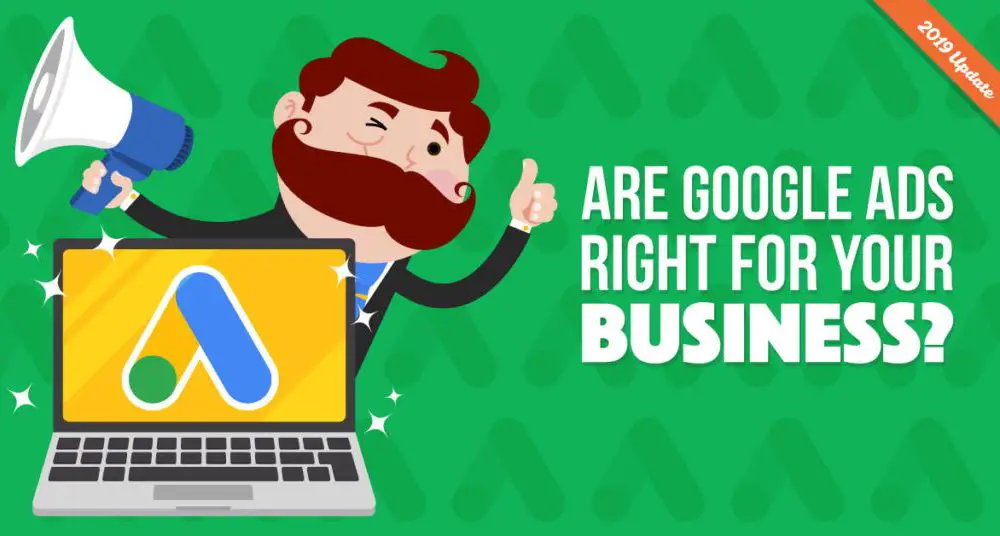As a small business owner, getting your brand and services in front of potential customers can be challenging as you compete with larger companies that have bigger marketing budgets. However, one cost-effective digital marketing tool that any small business can take advantage of is Google AdWords.
Google AdWords is Google’s pay-per-click advertising platform that allows advertisers to display their ads to users conducting relevant keyword searches. While AdWords can seem daunting at first, with the right approach it is very doable for small business owners to set up and manage their own campaigns. In this blog post, we’ll break down how small businesses can effectively use AdWords to attract new customers.
Getting Started with AdWords for Small Businesses
The first step is to create an AdWords account, which is free to set up. Google will guide you through setting up your business information and payment methods. You can then begin creating text ads and choosing keywords to trigger your ads.
When selecting keywords, focus on searches relevant to your products/services as well as common questions from potential customers. Use keyword research tools to find related long-tail keywords with lower competition. Aim to target 5-10 relevant keywords to start and test various ad combinations.
It’s also important to set up campaigns properly from the beginning. Separate campaigns by target audiences, geographic locations, or marketing goals for better tracking. Also, choose daily or monthly budgets that fit your marketing plans without going over them. You can always adjust budgets later based on results.
Writing Compelling Ads
The ads themselves are key to driving clicks from searches. You only have a few lines of text, so make them count. Include your main benefit or solution, then a clear call-to-action like “Learn More” to prompt clicks. Test different ad variations targeting the same keywords to see which performs best.
Some tips for writing effective small business AdWords ads include:
- Focus on benefits over features to attract interest.
- Highlight solutions to common customer problems or questions.
- Use empowering language and proof points to build trust.
- Always include a specific, trackable call-to-action.
- Keep ads short, concise, and scannable for mobile.
- Optimize headlines separately from descriptions.
In addition to text, you can expand ads with extensions like site links, callouts or service areas to include more information directly in the ad itself. Test different extension combinations.
Optimizing for Conversions
While clicks are important, the ultimate goal is getting conversions from your ads such as phone calls, emails or even sales. To improve conversion rates, make sure your landing pages are optimized accordingly.
Some things to check include:
- Matching ad content and messaging to page content.
- Including clear calls to action to the next desired action.
- Using benefits-driven copy and proof points.
- Focusing on one concise offer or solution per page.
- Ensuring pages load fast on mobile.
- Providing multiple contact methods.
- Adding conversion tracking for accurate analytics.
As you optimize, also test changes like custom audience targeting using remarketing or location extensions. Track metrics like cost per acquisition to improve efficiency. The goal is to lower customer acquisition costs over time.
Getting Help with AdWords
For smaller budgets especially, it’s worth considering outsourcing AdWords management to an agency or freelancer in the beginning. They can help speed up the learning curve and tap into best practices for your industry. Look for partners focused specifically on small business needs.
Some key services agencies provide include:
- Setting up accounts, and campaigns and optimizing ads.
- Handling billing/funding and account maintenance.
- Conducting keyword research and expansion.
- Creating audience targeting strategies.
- Monitoring performance and making adjustments.
- Providing monthly reporting and strategy consultation.
Handling daily tasks frees you up to focus on your core business while still benefiting from an expert’s experience scaling AdWords for ROI. Outsourcing also makes sense for advanced features requiring certified training.
Measure Success and Continually Optimize
It will take some time to test different strategies to start seeing results from AdWords. Analyze conversion metrics at a minimum on a monthly basis, and be patient – often 3 months of consistent data are needed. Make incremental, data-based changes, not knee-jerk reactions.
Some key metrics to track include:
- Cost per acquisition/click/lead – Should lower over time.
- Click-through rate by ad/keyword – Higher is better.
- Average position – Closer to #1 generally performs better.
- Conversion rate by device/page – Optimize landing pages.
- Campaign/ad performance over time – Watch for fluctuation.
Periodically check competitive ads as well and do workflow audits to improve. The goal over time is to gain more conversions for less spent on AdWords, fueling your overall growth and marketing performance. With optimization, small businesses can extract great value and success from this platform.
In conclusion, while there is a learning curve, Google AdWords provides an accessible and effective way for small businesses to gain qualified leads and customers in a measurable, budget-friendly manner. With the right strategy and ongoing optimization, AdWords can become a powerful driver for growing your small business.
About Author
- “From Skilled Worker to Permanent Resident: Canada’s Express Entry System”
- “Healthcare Careers: Jobs in the NHS and Beyond”
- Apply Now – Tailoring Jobs in Canada with free Visa and Application
- “Career Corners: Hot Industries for Jobs in the United States”
- Apply now – Taxi Driver Urgently needed in USA free visa and Application
- “H1-B Visa Guide: Navigating the US Work Immigration Process”
- “Healthcare Careers in the Great White North”
- Lester B Pearson Scholarships in Canada 2024 [Fully Funded] | Free Study at Canadian Universities

